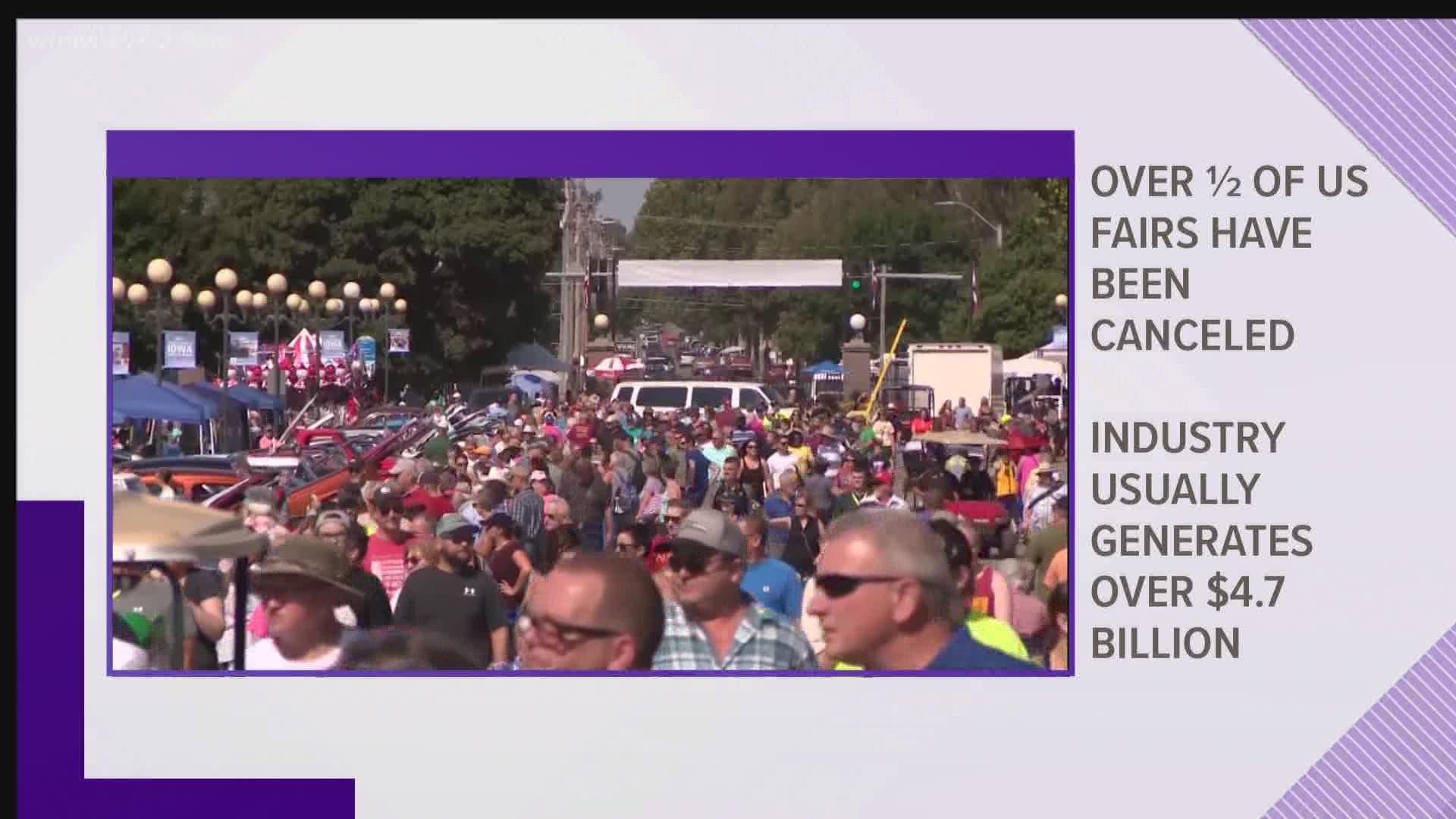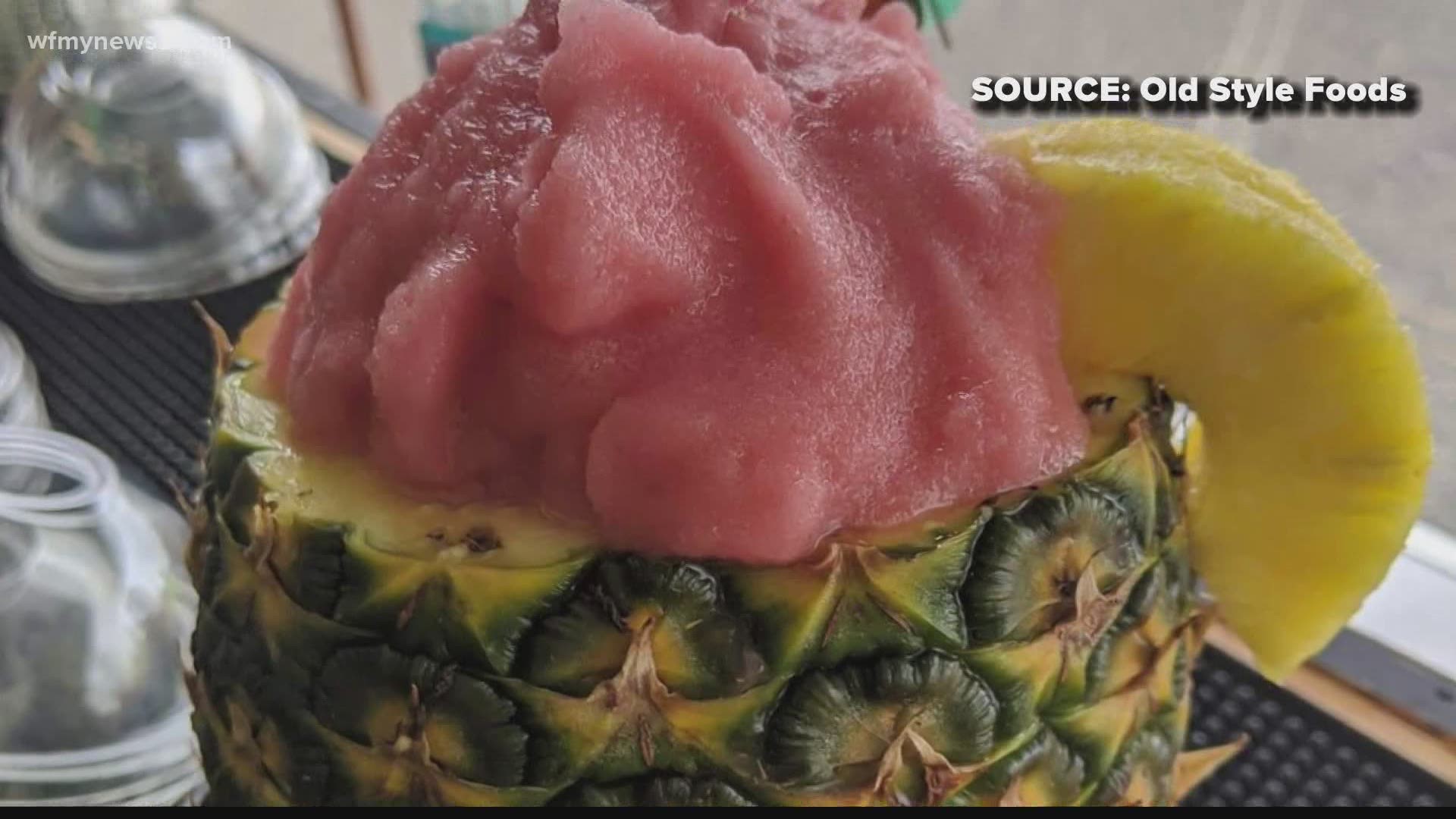State and county fairs are a quintessential part of summer for much of America, but more than half of the country's fairs have already been canceled because of the pandemic. That number is expected to rise
"Fairs are having to make that agonizing decision that they simply cannot produce the event that is needed,” says Marla Calico, president of the International Association of Fairs and Expositions. She estimates the industry generates more than $4.7 billion in revenue each year with about 100 to 150 million people attending
"This ripple effect throughout the communities, it's extensive. It is extensive, and for many rural communities, the loss of a fair is going to hurt,” Calico says. She says some sites are hosting food drive-throughs to help vendors. Other locations are being repurposed for socially distanced events. Some county fairs are still trying to help 4H and FFA members show and sell the animals they've raised.
Eric Campbell is a fourth-generation concessionaire whose fair history goes so far back, his family helped popularize the corn dog in the Midwest. Des Moines, Iowa-based Campbell's Concessions sells its famous corn dogs and pineapple whip at fairs all summer long. But this year, the entire route is canceled, including the biggest event of the season: the Iowa State Fair. It’s scratched for the first time since World War II. "Whatever money you have to borrow, the capital that you just lost, you won't make that back up in one year or two years, it might be a five year, down the road recovery for us,” Campbell says.
He says he'll shelve his new corn dog flavors until next summer, when he's hoping to serve up that irresistible fair food to families once again.
Fairgrounds are also losing millions from other canceled events no longer renting their space.


